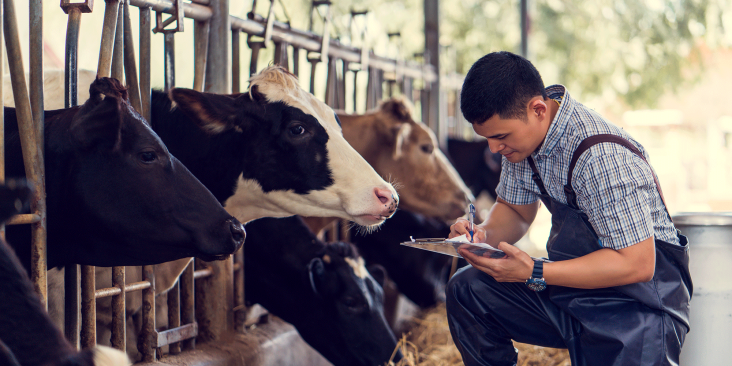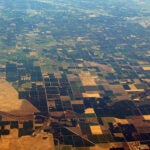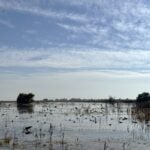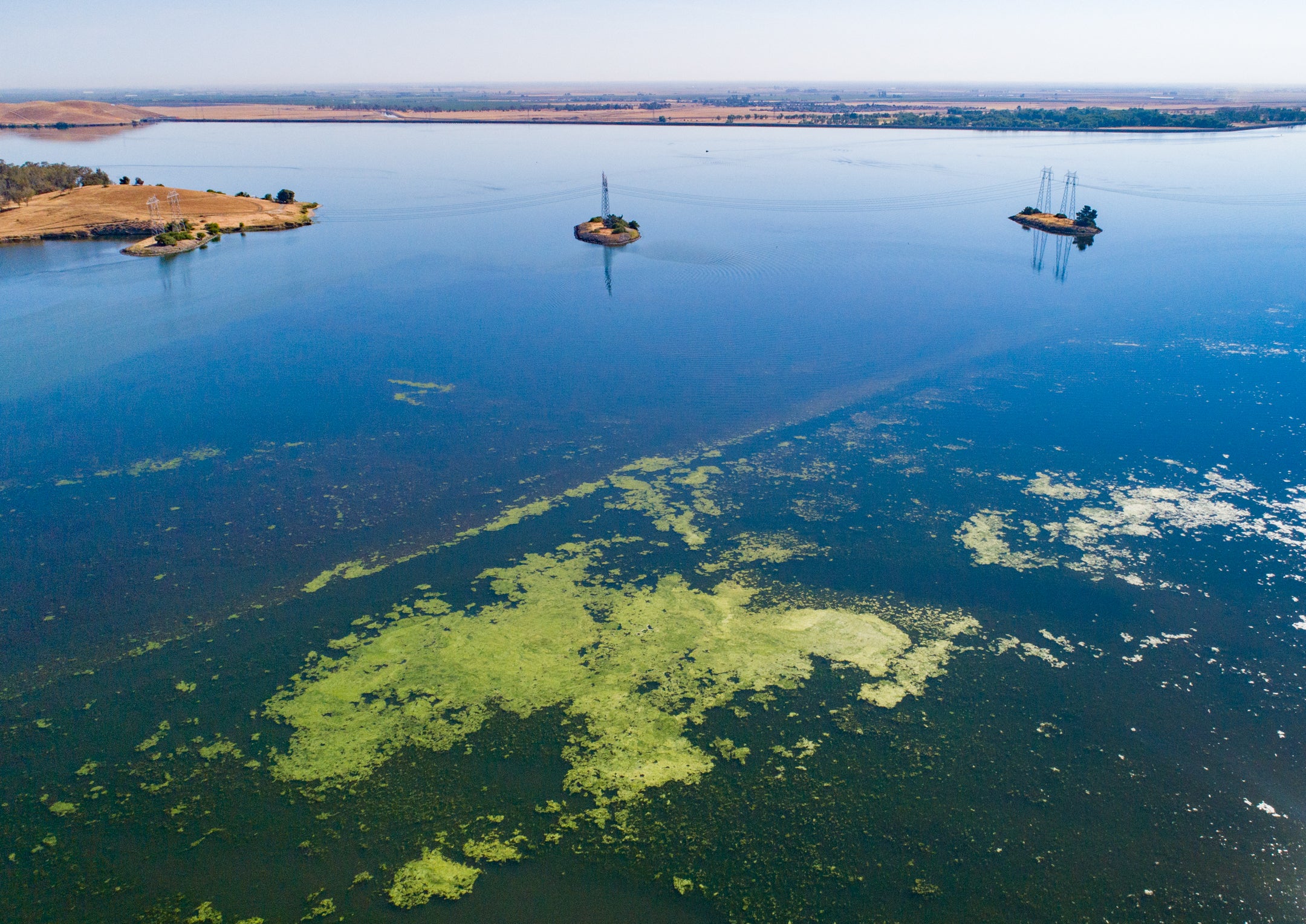
Aerial view shows algae at O’Neill Forebay, a joint Federal-State facility and part of the State Water Project in Merced County, California. Algal blooms may contain toxins that can be harmful to people and pets. Photo taken May 25, 2022.
Florence Low / California Department of Water Resources, FOR EDITORIAL USE ONLY
In 2022, Rosa applied for the Water Leadership Institute. Her motivation? To actively address severe water challenges impacting her family in El Nido in Merced County. Located in California’s breadbasket, Merced County is a scene of abundance with lush fields, orchards, and prospering dairy farms. Yet, beneath this scene lies a harsh reality. Rosa’s family and neighbors grappled with the consequences of water contamination, a pervasive issue with a grasp on daily life.
For years, Rosa made the bi-weekly trek to purchase clean water for her family’s ranch. Routinely, she stocked up on large quantities of jugs and bottled water to ensure her family had safe water to cook, clean, and drink. When this water ran low, they reluctantly turned to their domestic well for cleaning and personal care. Her family was aware that the well was not clean, but that was the best alternative available. Oftentimes, when they turned on the faucet, the water was foamy, had a strange smell, and ran white, the same color as the milk from the nearby dairy farms. She and her neighbors even began noticing their hair would fall out when they used the faucet water for bathing.
Rosa recognized the urgent need to address the water contamination plaguing her community. She soon found herself attending the Water Leadership Institute, where she learned that she could have a say in local water decisions. We talked with Rosa about her experience in the Institute and how she is helping others take action in local water decisions.
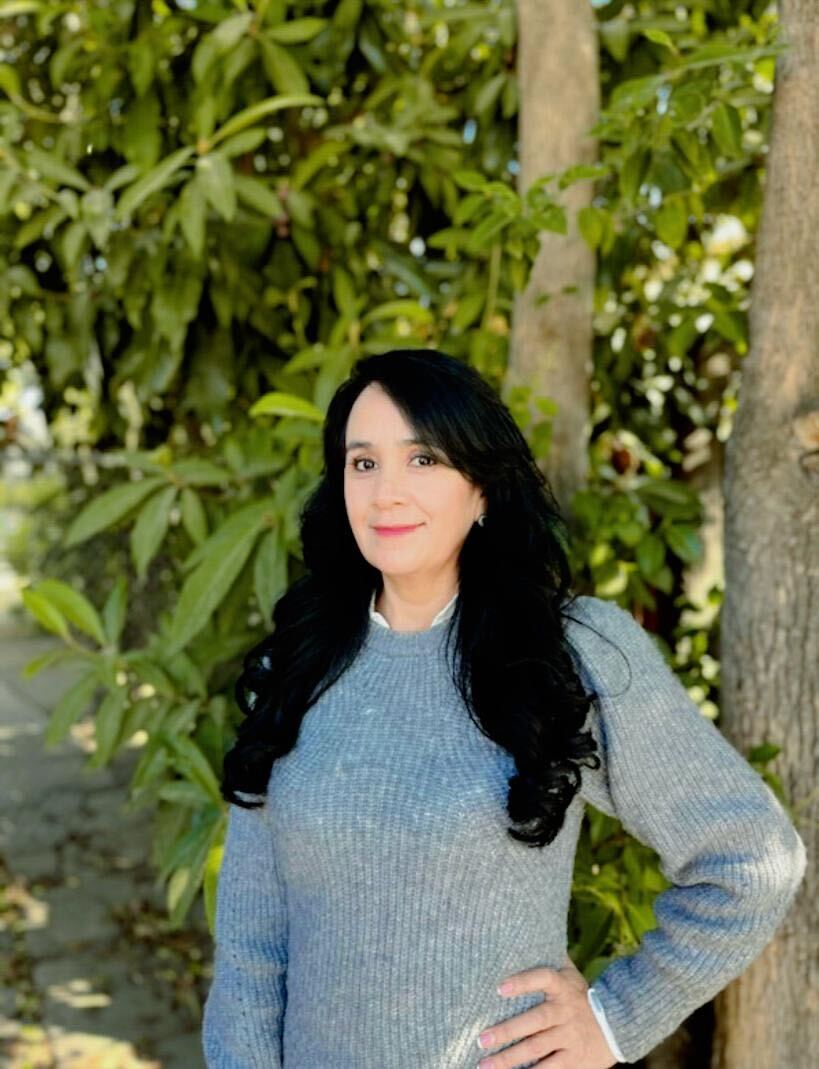
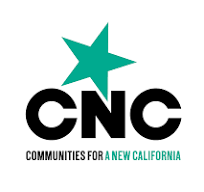 Rosa Inguanzo, Merced Lead Organizer, Communities for a New California
Rosa Inguanzo, Merced Lead Organizer, Communities for a New California
What was the most valuable aspect of participating in the Water Leadership Institute?
One of the most important things I learned from the Institute was the history of how water systems function in California. I learned who oversees water management and distribution in our districts, counties, and cities — which many people need help understanding. That is super important because it is a complex topic affecting thousands of families. As I participated in the Institute, I began understanding the current situation, how to make a plan of action and who to go to when issues arise. Through the training, I started to realize that you can only help your family if you understand the complexities of the problem. I can only help my family, loved ones, and community if I know what the root causes of water contamination are.
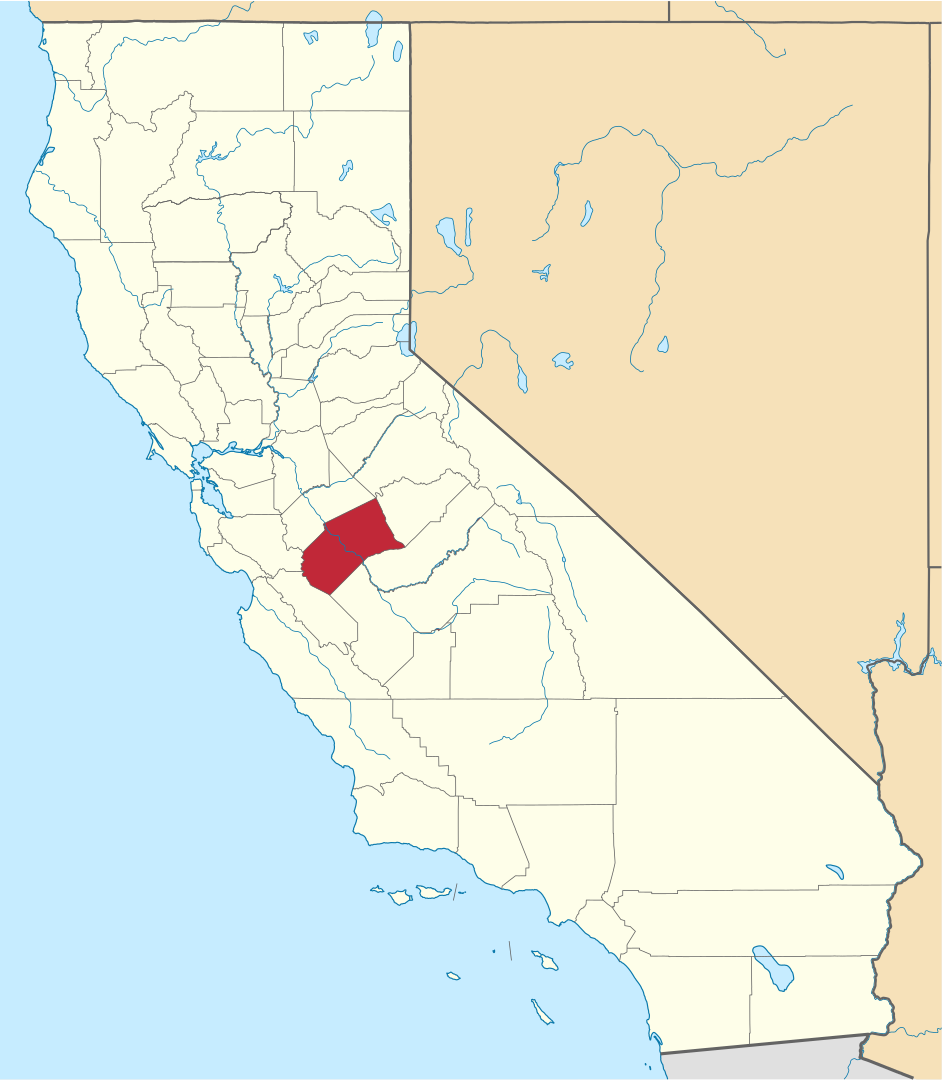
Location of El Nido in Merced, California By Thadius856 – Own work based on: Blank California Map.svg by Thadius856, Public Domain, https://commons.wikimedia.org/w/index.php?curid=3278062
How have you applied what you have learned from the Institute to your work in your community?
Everything I’ve learned has helped me in my community organizer work. For instance, I help train large groups of volunteers in water advocacy. Passing on what I have learned from the Institute to other community members helps us better work together to solve problems.
Not only is there the knowledge aspect, but through the Institute, I have had the opportunity to create relationships between neighbors and the experts in charge of water issues. These connections have been invaluable because I can connect their expertise with my community. These contacts then spread the information and bring the knowledge to more people, and we create the change we need and deserve.
It’s not only about informing but also about being able to make tangible changes for people like me and my family.
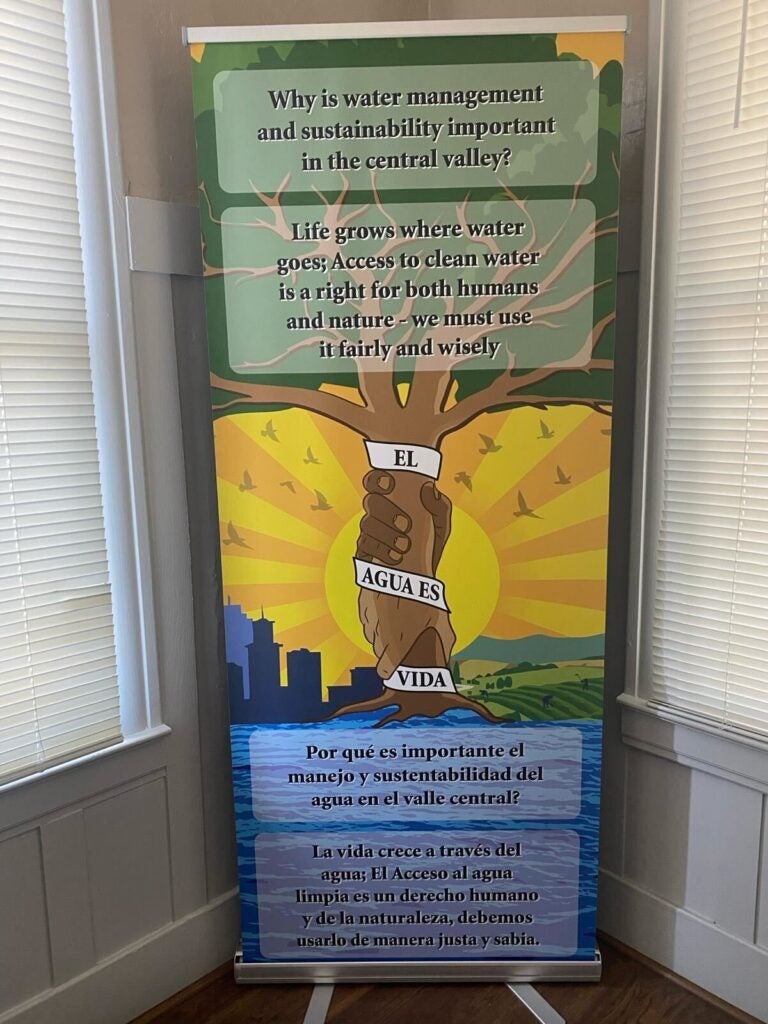
Community mural celebrates the importance of local water management & sustainability, developed by WLI alumni Carla Solis, Mica Bennett, Goana Toscano, Irene Cacho and Rosa Iganzo. Photo courtesy of Rosa Iguanzo.
What is your advice to community members thinking about getting more engaged in water issues?
Sometimes, people are discouraged and afraid to raise concerns or advocate for solutions for their water problems. For example, many members of rural communities live in housing owned by their employers. They worry that if they raise an issue, they or a member of their family could lose their job, be kicked out of their house, or be seen as going against their employer because they may be contributing to the contamination problem.
I would encourage all residents to allow themselves to learn. The intention is not to get them in trouble but rather to educate themselves on their specific water challenges, share their experiences, and feel confident (and not alone) to participate in community water meetings. We can even go further and take on leadership positions. It is us — residents of rural communities who are affected directly by the issues — that need to be part of the decision-making in order to fight for solutions to improve our water problems.
What would you say to someone who is hesitant about applying to the Institute or may think they are not a right fit for community water leadership?
There is so much to learn and to contribute. By joining the Water Leadership Institute, you can share what you learn, motivate, and mobilize others in your community to advocate for water solutions and local water boards. If we are not part of the meetings, we are left out of decisions. We cannot allow others to decide for us when we can participate in decision-making.
Make a difference in your community and apply for the Water Leadership Institute today. Deadline to apply is February 15, 2024.

